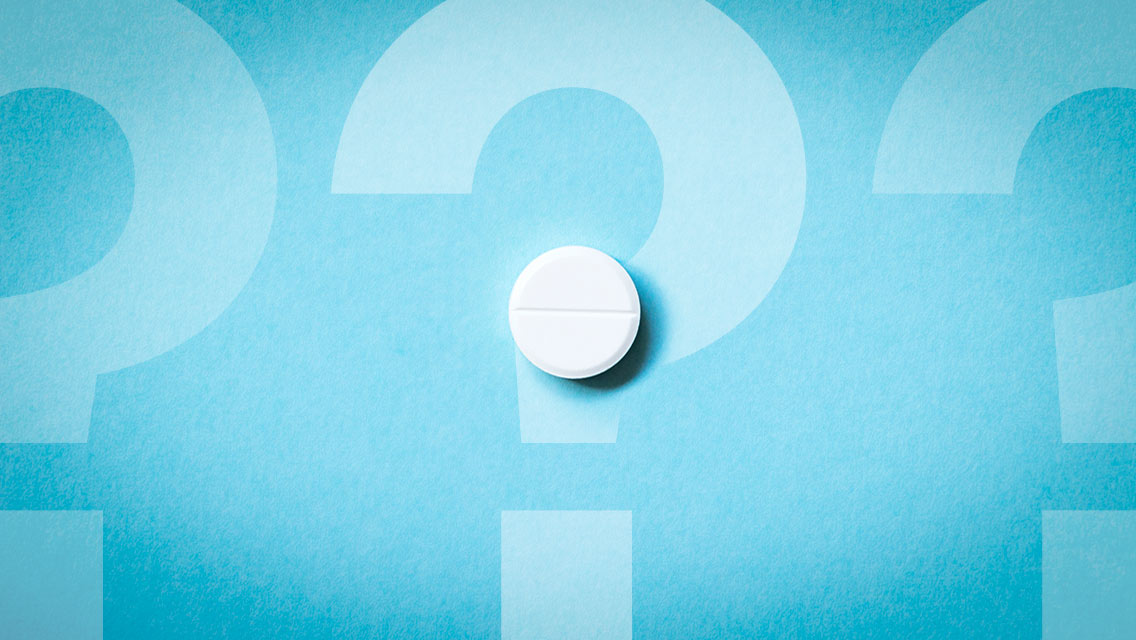One of the many quirky features of modern medical science is the frequency with which the conventional wisdom it produces becomes, well, unconventional. It often seems like whenever some research gains a foothold among the overlords who dictate how medicine should be practiced, countervailing forces eventually arise to topple it from its lofty precipice.
The list is long, and the “wisdom” may be familiar. Remember, for instance, when eggs were thought to be too hard on the heart for regular consumption? You may also recall that, for a good half-century, postmenopausal women were sold hormone replacement therapy to prevent chronic disease. And when I blew out my knee a quarter-century ago, it was common knowledge that meniscal surgery was the only remedy for cartilage tears. Subsequent research overturned all these theories. In fact, one recent study found that about 13 percent of the clinical trial results researchers reviewed had been eventually debunked.
Among the more recent myths to lose credence upon further review is one of particular interest to the Medicare set: the belief that healthy seniors should take a low-dose aspirin to prevent a heart attack or stroke.
It’s a premise that was first introduced in the 1950s by an obscure general practitioner in Glendale, Calif., and gained traction throughout the 1990s with several studies suggesting a salutary relationship between regular aspirin usage and a healthy heart. It wasn’t until 2022 that the U.S. Preventive Services Task Force (USPSTF) challenged that notion.
Then, last year, a team of researchers led by Monash University neuroscientist Geoffrey Cloud, MB, released the results of a study involving more than 19,000 older adults without a history of cardiovascular trauma that found regular aspirin usage was much more likely to result in brain bleeding than in stroke prevention. As Emily Baumgaertner reports in the New York Times, the study suggests elderly people prone to falling should be especially wary of aspirin’s dangers.
The analysis, reviewing the conclusions of the landmark 2018 ASPREE study, reinforced the USPSTF’s change of heart and has generated some controversy — and a good deal of confusion — among physicians and their patients.
“We can be very emphatic that healthy people who are not on aspirin and do not have multiple risk factors should not be starting it now,” Randall Stafford, MD, PhD, a Stanford University epidemiologist who was not involved in the study, tells the Times.
The consensus, at least among these practitioners, was pretty clear: always consult with your doctor before making such a move.
But for those already taking aspirin, he adds, these results are less conclusive. “The longer you’ve been on aspirin and the more risk factors you have for heart attacks and strokes, the murkier it gets.”
That murkiness was highlighted in a University of Michigan poll released earlier this month. Pollsters surveyed nearly 3,000 people between the ages of 50 and 80 shortly after the results of Cloud’s study were published and found that more than half of the respondents who were taking aspirin at the time didn’t have a history of cardiovascular disease. And about a third of that group said they were not aware of the risks of brain bleeding.
“Aspirin is no longer a one-size-fits-all preventive tool for older adults, which for decades it was touted as,” says Jordan Schaefer, MD, a hematologist at Michigan Medicine. “This poll shows we have a long way to go to make sure aspirin use is consistent with current knowledge.”
Baumgaertner’s own survey of cardiologists suggests that current knowledge is itself open to some interpretation. She heard stories of stroke victims who stopped taking aspirin after reading about Cloud’s study and wound up in the ER with another stroke. The consensus, at least among these practitioners, was pretty clear: always consult with your doctor before making such a move.
“When a study comes out, you have to ask yourself, How well do I fit into this study’s population?” says Shlee Song, MD, director of the Comprehensive Stroke and Telestroke Programs at Cedars-Sinai Hospital in Los Angeles. “If you’ve ever had a heart attack or stroke event, this study’s findings do not apply to you.”
This may temporarily disappoint the aspirin-averse among my contemporaries, but don’t despair. It probably won’t be long before another study surfaces offering more amenable conclusions.





This Post Has 0 Comments